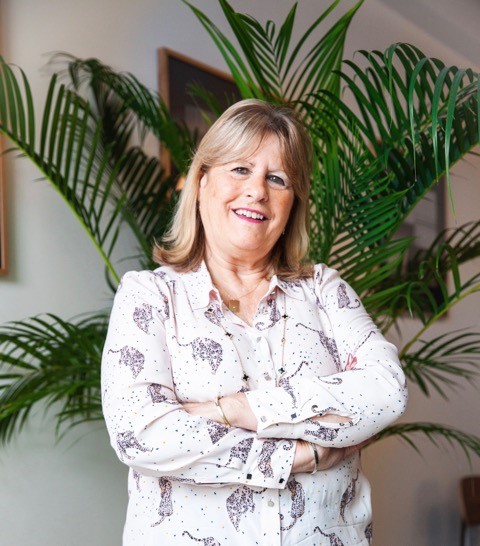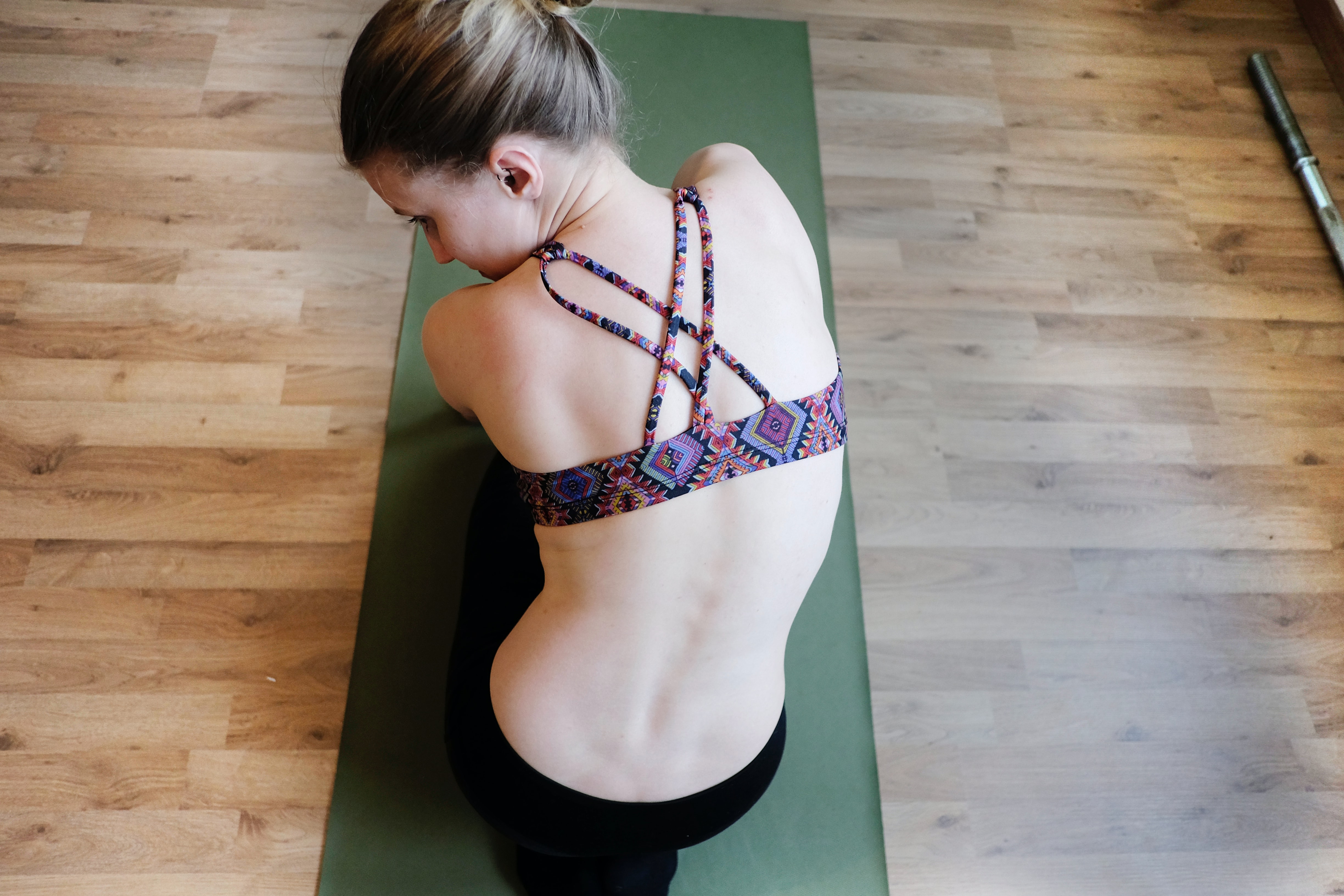
It might sound like something out of a movie, but trust us, Suzanne Williams is one of the most phenomenal (and nicest) women in international security. We talked to her about her career over the last 28 years, working as a hostage negotiator. Now, an independent hostage responder and crisis manager, Suzanne specialises in dealing with hostage negotiation, abduction, extortion, and blackmail.
Q. You’ve been a hostage negotiator, and you’re now a hostage responder. What’s the difference?
A. The hostage negotiator is something that the military or police do. You’re not really a hostage negotiator in civilian life. You’re what’s known as a hostage responder or crisis manager.
Q. What is your job as a hostage responder and crisis manager now you’re an independent?
A. I choose to work within the humanitarian sector because I like that sector really, and they are going to dangerous places doing great work. I work with them before they go and then if something happens I can assist in managing the security incident whilst it is ongoing. Upon the return of the affected personnel, I run an operational debrief.
Q. We seem to hear far less about the dangers of humanitarian work and kidnap than say terrorism and kidnap. Is a lot of your work ‘under the radar’, so to speak?
A. Yeah, that’s completely right. Perhaps ten years ago kidnaps would have been resolved completely under the wire, completely quietly. Nobody knew that they had been taken and they were resolved before anyone really knew anything about what was going on. But that really isn’t the case now because we have 24/7 news, we have social media, and so kidnaps are reported a lot more and people are aware of them a lot more than they used to be, which doesn’t always help the response. Ideally, you’d like to respond quietly so that you don’t raise the profile of the hostage, so you can just get on with doing your job, but that doesn’t really happen quite so much. Well, it doesn’t happen much these days at all.
Q. What training have you gone through to get where you are today?
A. It’s been a long journey, that’s a bit of an understatement! About 28 years ago I was a police officer, and I just thought that this type of specialism may interest me because when you’re dealing with murders or assaults there’s not a lot you can do for a family, other than arrest the person who committed the crime. But when you’re a negotiator, when someone has had a loved one kidnapped or detained overseas, you can actually honestly look them in the eye and say, ‘I’m going to do my very best to bring them back.’ Well, you can’t say that to a murder victim, but you can say that to a kidnap victim’s family. So, for me, that was the interest. I did the initial training with Scotland Yard. And… it just felt right, I just knew that it was something that I would want to be involved in for a long time, and as it turned out I have been and still am. […] So I trained with Scotland Yard, I’ve trained with the FBI – quite intensive training as you can imagine – and worked with most of the European police forces, and I did a lot of training with the Mounties as well, the Royal Canadian Mountain Police.
Q. How does the reality of kidnap and hostage negotiation compare to how the public thinks about it, which is very Hollywoodized?
A. I don’t know that the average person in the street knows very much about hostage negotiation unless they have seen some of the movies like Proof of Life, Man on Fire… those type of films.
How is it compared? The negotiator or the responder concentrates on that part of the job whereas I notice in the movies they tend to be doing every aspect of the response. Also, to be a good hostage negotiator you really cannot have an ego, and from what I’ve seen in the movies sometimes they do. I think real negotiators are a lot quieter, a lot less dramatic, and possibly more business-like, and definitely less emotional. We have to be good at empathy though. My world is not glamorous – it is one of human misery and suffering, I do not truly see that reflected on the screen.
Q. What are the main reasons for kidnap?
A. The main ones would be criminal, then political, then there may be protest – sometimes people are kidnapped in order to raise awareness of some protest that they have – and then human shield – sometimes people are detained as a human shield. By far the most common motivation is criminal kidnap, that is kidnap for ransom.
Q. What is the stretch of your work and remit now?
A. I’ve lost count of how many countries I’ve been to. There isn’t any limit or any restriction really. Nowadays technology assists with communication to the distant countries.
Q. So you travel a lot?
A. Oh God yeah, do I travel a lot, sometimes I’m not even sure which country I’m in! I have sometimes got to the airport and had to look down at my boarding pass to remind myself where I’m going. At least three or four times a month. And they’re very short turn around as well, I don’t normally hang around much. My personal safety and security is also a serious consideration especially as I have been doing this for so long.
Q. You’ve also worked in royalty protection – what was that like as a job?
A. I was part of the royalty protection team, looking after the royal family for a few years. It’s a big team and I was part of that team. I was part of senior management actually, looking after that team. Lots of planned events obviously, you get plenty of notice when things are going to happen because you know when the trooping’s going to happen, you know when the Queen’s going to open Parliament, so you get lots of notice for planned events. But there are also the spontaneous events that you didn’t know were going to happen so I think that the benefit of my time within that department was contingency planning, because outside of royalty you can have a plan A and you think you’re going to get away with it, it’s going to work, and actually when you work for royalty you have to have a plan A, plan B and sometimes a plan C!
So, I think what I really learned working as part of that senior management team was that it really taught me about what happens if plan A doesn’t work, and I think that gave me great experience in contingency planning. Nowadays I often think what a good basis it was because the stakes are so high in that department that you have to have contingencies, and perhaps before my stint with that department, I wasn’t quite so contingency aware, if that makes sense.
Q. Personally, how do you find being a hostage responder? Does it come with a lot of stress and anxiety?
A. It’s about managing other people’s stress. I just find it so rewarding … I get angry at what bad things bad people do to good people, but that’s it really, I don’t get stressed about it at all. […] There’s so much in a kidnap that we’re not in control of, that the one thing that you have to be in control of is your own emotion. And you can do that, and then I can try and attempt to control other people’s emotion by giving them advice and guidance. That’s the premise that you have to start from, because if you’re emotional then other people are emotional, and you’re not going to get the job done. That’s why you just have to deal with the fact and try and find a way through.
Q. How long do you see yourself doing this for?
A. That’s the really interesting question isn’t it and a lot of people are asking me that same question [laughs]. I’m going to be really honest with you, for as long as I’m still making a difference and I’m still bringing people home… For the foreseeable future, I’m going to carry on doing it. It truly is a privilege to do this work, I am very lucky.
Read more from Suzanne on her recent blog post about using hostage survival techniques to cope with the Covid-19 lockdown. Suzanne is also one of our travel safety trainers in our courses.
Further Reading

Sue Williams QPM, Hostage Responder and Associate Fellow Saïd Business School, University of Oxford shares lockdown tips based on her specialist experience as a hostage responder.
How is Lockdown Similar to a Hostage Situation?
All across the world, we are enduring extreme social distancing and isolation as our governments and health services fight COVID 19. I have been working for many years with people who have been kidnapped, and people who have been held hostage, who have had to learn to adapt to survive.
There are similarities with where we find ourselves now, vast numbers of us, forced to stay at home. So, what are the lessons to be learnt from ‘conduct after capture’ techniques and the parallels that could help us survive this ordeal?

If you are unlucky enough to be kidnapped and held hostage, you can expect to feel a combination of the following:
- An almost paralysing fear of being harmed or death.
- Continuing panic, loneliness and disbelief.
- Depression occasioned by the knowledge that you have no control over this situation, and you do not know when it is going to end.
- Internal stress created by the uncertainty of regular food and drink.
- Desperate longing to be back with your family and friends.
- An obsessive reflection on the normal and routine aspects of your life, things have so often taken for granted.
The extraordinary times of this virus do have some stark similarities to a hostage situation. In all probability, you may be experiencing one or more of the above. Although our isolation is to a certain extent voluntary and is happening for our own good, and the good of our society, human beings are social creatures, especially in times of crisis. So it is natural to crave for the company of our friends and family. That urge to be together makes us who we are.
So, let me stress these are normal reactions to an abnormal temporary situation. Allow yourself to feel what you feel. You are not weak. You are you. Everyone experiences some of, if not all, these things. What you feel is an honest response at a difficult time. Don’t beat yourself up. In this case, your mission is to acknowledge where you are and then adapt and survive.

Lockdown Tips to Equip You
To give yourself the best chance of surviving, these lockdown tips are here to help. First, be kind to yourself. Each one of us responds differently. Your reaction will not be the same as your partner’s, or your friend’s on WhatsApp or a colleague on the phone. Be kind to them too, diffuse tension, don’t escalate it.
Recognise what you are feeling from the list above.
This recognition will help you come to grips with what is, without doubt, difficult for everyone. Realise that you are having a natural reaction to an unnatural situation.
The most important thing is to remember to be who you are. Never lose sight of this. Your normal life has routines and standards. Be that person.
Plan a Structure
Do not slip into a dishevelled, sloppy person who has used the situation to give up in some way; someone you don’t recognise. Plan a structure – a daily routine. This must include:
- Personal hygiene – start each day in your normal way
- Appearance – look in the mirror and see who you usually see
- Keep mentally active – don’t slump in front of daytime TV. Find a way to challenge yourself.
- Stay up to date with medication
- Make sure you have adequate food and drink at usual meal-times – if you are on your own, really try to make a special effort with this.
- Communicate with your friends and relatives. We are all so busy. Use this extra time to reach out to people with whom you may have lost touch.
- Exercise; a lot can be achieved in an hour. Plan out a routine for yourself, or if you’re online, and most of us are, join a live stream class, something most hostages don’t have access to.
- Maintain a sense of purpose and value. It is hard for us to plan for the future when we don’t know when things will get back to normal. But we do know they will, so this time may be useful to evaluate how you feel about what gives you purpose and value. Try and use those values to how you approach this difficult time.
- Knowledge is power, so keep well informed. Read outside your own comfort zone. Look at what is happening in other countries. Instead of waiting to have the news interpreted for you, compare and contrast stories from different news organisations yourself.

One of the key lockdown tips is to plan for the long haul. If you think this will be over in two weeks and it drifts on for two months, or longer, this will add to your own psychological strain. So, lower your expectations to avoid disappointment. Expect months and you will be happy when it is weeks.
Many former hostages I know adopted a combination of different coping mechanisms. Some wrote plays, music, or played chess with discarded objects. People are amazing. They can achieve great things in very restricted and most arduous of circumstances. So many people say, ‘I never have the time to…’ Well, now you do. Use that time to focus the mind and learn something different. Come out of this better, stronger. How could this apply to you? What could you do? Hold that thought. Write it down. Look at the words you’ve put on the paper. Look at them again tomorrow morning.
And one more thing – don’t forget – the longer your period in captivity, the more opportunities arise for a safe resolution and your return to freedom. Repeat that to yourself. The longer this goes on, the more likely it is that you will avoid the virus yourself and will survive. Outside, other people are working hard to fix this, to help you, to help us all return to a normal life. Trust this because it is true. This time will pass. This is all temporary. You have not been forgotten. Stay calm, stay safe. Adapt. Survive.
Sue Williams QPM, Hostage Responder and Associate Fellow Saïd Business School, University of Oxford
Sue Williams is a Travel Safety Educator at Maiden Voyage. If kidnap of your employees is something that concerns you please contact us and refer to our courses.
Further Reading

Limited data suggests that many pregnant women travel without experiencing health problems. However, pregnancy during travel carries important risks that should be considered carefully prior to booking the trip and there are specific concerns with the newly emerging Zika virus. Comprehensive travel insurance is essential for all travellers and a full declaration of medical conditions, including pregnancy, should be made to the insurers. Insurance policies differ in their terms and conditions, and pregnant women should ensure that they specifically check that the policy will cover the cost of medical treatment if a pregnancy related problem occurs, including early labour, the care of the pre-term baby and repatriation costs if appropriate.
If you are a pregnant woman with a significant obstetric history, an inadequately controlled or newly diagnosed medical condition such as diabetes, or are planning to travel to malaria or Zika affected areas, you would be advisable to postpone non-essential travel, especially where the destination includes areas without access to adequate medical care. If travel is essential, the advice below should be discussed with your midwife, GP, obstetrician or travel health adviser. Travel with certain pre-existing medical conditions or obstetric complications is not recommended. Conditions such as cervical insufficiency, pre-eclampsia, premature rupture of membranes, placental abruption, suspected ectopic pregnancy and vaginal bleeding are likely to be considered contraindications to travel.
General advice:
The early pregnancy scan (usually performed between 10 to 13 weeks) should ideally be performed prior to travel. This will confirm the dates of your pregnancy and the viability of the pregnancy. Ante-natal records and next of kin details should be carried when travelling. Appropriate gynaecological, obstetric and neonatal care may be limited or non-existent in some areas so if travel is considered essential you should ensure that emergency plans are made in advance of travel.
Commercial air travel is considered safe in uncomplicated pregnancies. The time of pregnancy depends upon the airlines but usually up to 36 weeks and up to 32 weeks for a multiple pregnancy. If your ‘bump’ suggests that you are further advanced it would be wise to travel with a doctors letter stating you are fit to fly. These often need to be signed and dated within a week of the planned air travel. Pregnant women should check the airline’s requirements when booking flights, but generally after 28 weeks most airlines require a medical certificate confirming the estimated date of delivery and that there are no complications. Remember to ensure that return flight occurs within the allowable dates!
Cruise liner companies may decline to carry pregnant women in the mid to later stages of pregnancy. Pregnant women should check the individual cruise line requirements when booking and take into account any restriction relating to connecting flights.
Pregnancy increases your risk of venous thromboembolism (VTE) (deep vein thrombosis and pulmonary embolism). When flying, where legroom may be restricted and on flights over four hours, it is recommended that you wear properly fitted, below knee, graduated compression stockings providing 15 to 30mmHG of pressure at the ankle during travel . Also you should walk around the cabin at regular intervals during the flight and regularly flex and extend the ankles to encourage blood flow from the lower legs. And keep yourself well hydrated.
Mosquito Borne diseases:

All pregnant women who live in or travel to areas where mosquito-borne diseases are known to occur should practice bite avoidance measures. For a traveller the best avoidance is not to travel. For those that must, first ensure you are aware of the risks in destination. Zika this year and Dengue over the last few years has shown us that the risk for areas can change rapidly. DEET has a good safety record in pregnancy; repellents containing up to 50 per cent DEET can be recommended. Excessive application of repellents should be avoided and DEET can be applied to natural fibres such as cotton clothing. Repellent can be washed off when returning to air conditioned accommodation or before sleeping under an insecticide treated bed net. Pregnant women must use protective clothing and sleep under an insecticide treated mosquito net, if they are not in air-conditioned accommodation; but in preference should seek out the latter.
Malaria
Malaria is transmitted by Anopheles spp mosquitoes, which bite from dusk to dawn. Evidence shows that pregnant women are more susceptible to mosquito bites and, for a variety of factors, are more vulnerable to the severe effects of malaria. Malaria in pregnancy increases the risk of maternal death, miscarriage, stillbirth and low birth weight, with associated risk of neonatal death. Diagnosis of falciparum malaria in pregnancy can be difficult as parasites may not be detectable in blood films due to sequestration in the placenta
If travel is essential, the ‘ABCD’ of malaria prevention should be followed:
- Awareness of the risk,
- Bite prevention,
- Chemoprophylaxis (antimalarial medication)
- Diagnosis (and prompt treatment if a fever occurs after travel to a malaria area)
The type of chemoprophylaxis will depend upon the area you are travelling to, as there is resistance to some antimalarials, and which trimester you are in. This needs to be discussed with a travel health adviser prior to travel.
Travellers who plan to become pregnant after taking antimalarials and wish to do so with minimal antimalarial drug present, may elect to observe the following time intervals after completing the course, before attempting to conceive :
- One week following doxycycline use.
- Two weeks following atovoquone plus proguanil combination preparation.
- Three months following mefloquine use.
Chikungunya
Mother to child transmission of chikungunya virus infection has been reported in women who were infected with the virus in the later stages of pregnancy and had fever in the days immediately prior to or during labour. The mother and baby do well with prompt diagnosis and supportive treatment. Make sure if you are pregnant and you develop a fever and you have been travelling you advised you doctor or midwife of your travel itinerary and dates.
Dengue
Dengue is transmitted by the daytime biting Aedes spp mosquitoes. While pregnancy is not thought to increase the incidence or severity of this disease, some case reports suggest that dengue may predispose women to certain pregnancy complications. It has been suggested that women in late pregnancy should avoid travel to areas of ongoing disease, and those earlier in pregnancy should consider dengue a serious hazard.
Zika
This relatively newly emerging disease affecting Central and South America and now parts of the Caribbean. Knowledge about the disease and its risks is being studied, as are potential preventative methods and treatment options. However, today there appears to be a clear association between Zika virus infection cases and an increase in a condition known as microcephaly: congenital brain malformation. Check the CDC for the latest information on areas impacted by Zika.
Investigations are on-going as to see if there is a clear cause and effect, and if there is a stage of pregnancy that this most likely occurs. Evidence shows that the virus can be passed from mother to unborn baby as the virus can pass the placental barrier, and an increase in cases in Brazil matches an increase in Zika infections. Pregnant women, and those trying to conceive, who are planning to visit affected areas should discuss their travel plans with their health care provider to assess their risk and receive advice on mosquito bite avoidance measures. It is very important that pregnant travellers maintain vigilance regarding the spread of Zika to the areas they are visiting. As Zika is spread via the same mosquito as Dengue there is concern that its world wide spread may ultimately be the same as dengue.

Dr Geary is the Medical Director for International SOS in London. She, along with her team, are responsible for the health of travellers worldwide. Her area of interest is communicable diseases and their control, from managing the outbreak of meningitis in a school, to setting up the first pandemic triage centre in the East Midlands whilst with the Health protection Agency and last year involvement in the ebola crisis and response.